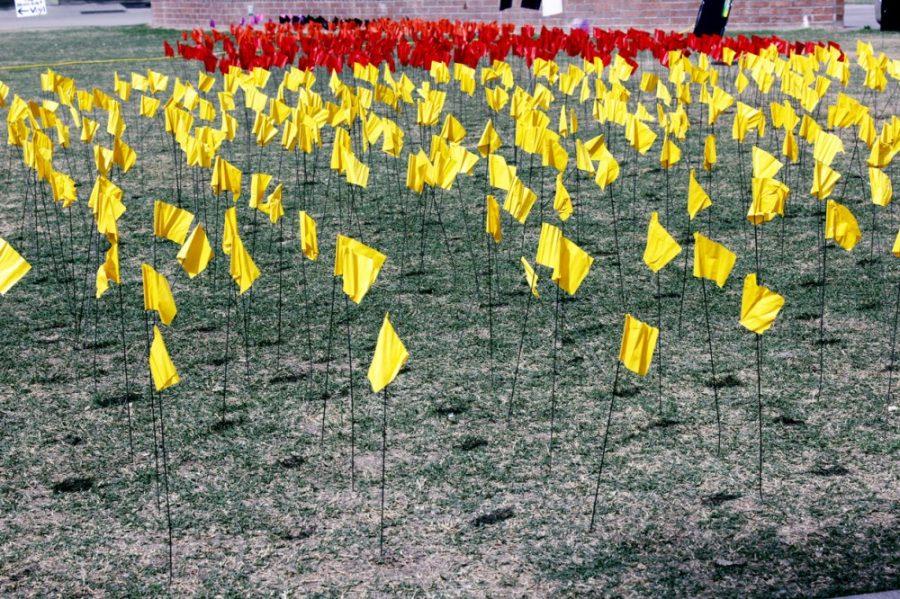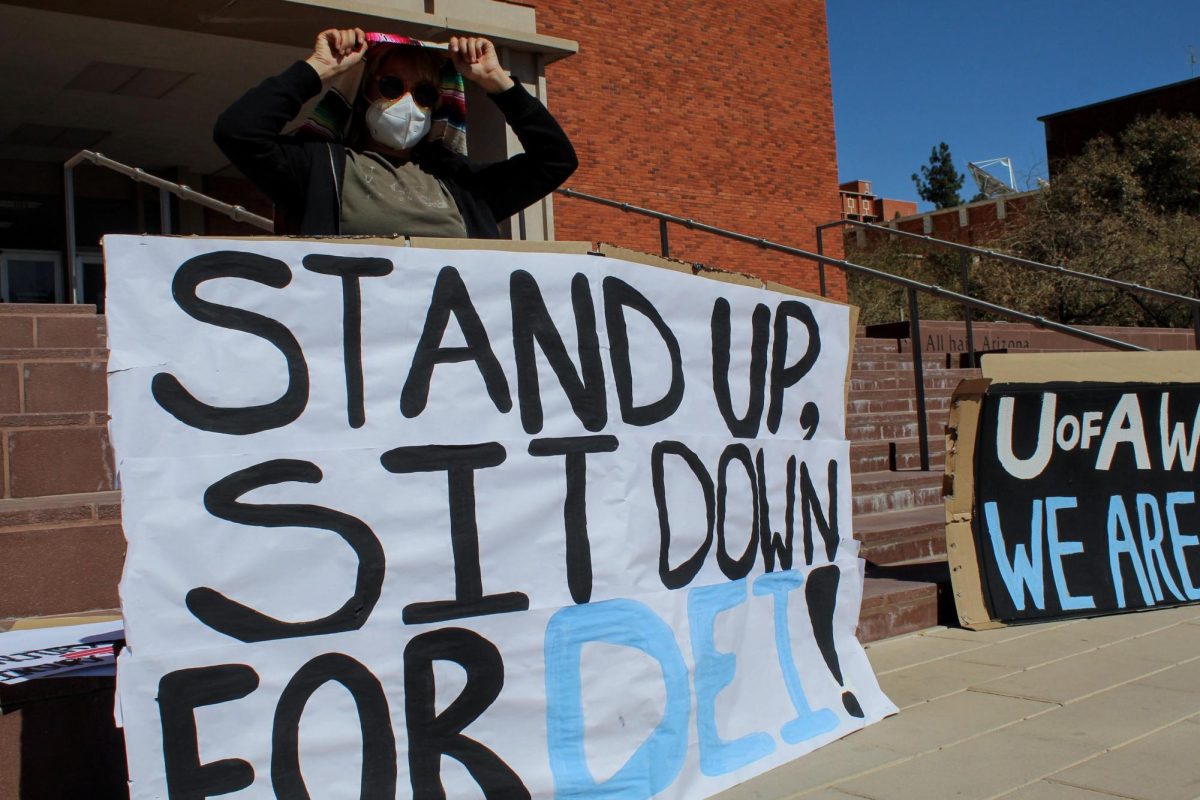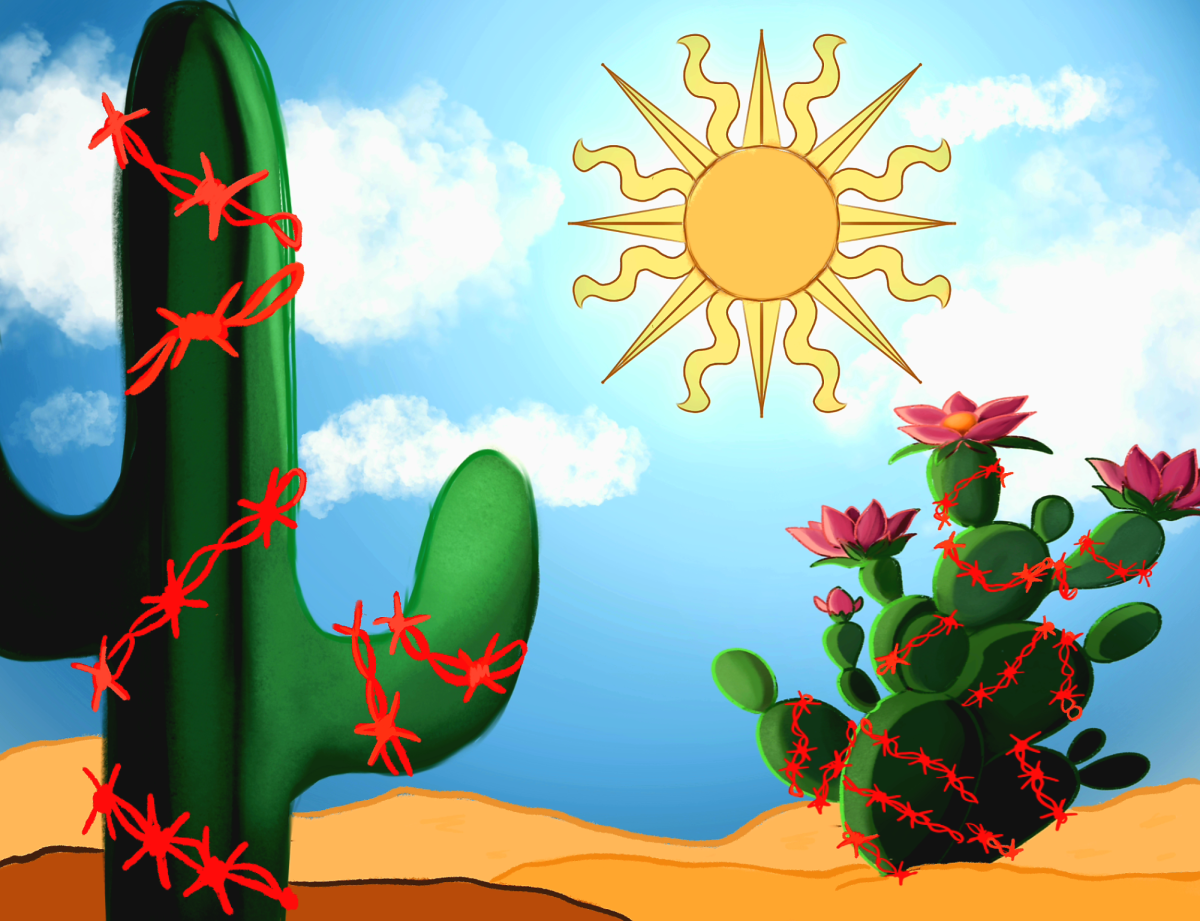The UA Hillel Foundation will be hosting its annual Holocaust Vigil on the UA Mall this week.
The vigil will begin at noon today and continue for 24 hours, until 12:15 p.m. on Thursday.
Throughout the vigil, volunteers will be reading out the names of Holocaust victims in 15-minute intervals, and local Holocaust survivors will speak about their experiences. Interactive educational pods will also be set up on the Mall.
“It’s a really unique opportunity to get to speak with [the survivors] because they just have incredible stories to share,” said Hannah Crawford, a sociology senior.
Crawford, who is on the Wildcat Jewish Student Leaders Team for Hillel, said her role is organizing the Holocaust vigil, which takes the entire year to plan. According to Crawford, the biggest issues when planning it were trying to adjust to the construction changes that took place on the Mall and finding people to fill the overnight shifts to read out the names.
Crawford said this year, the Hillel Foundation reached out to the Pride Alliance, an LGBTQ group, for the first time to include it in the event.
“Jews weren’t the only victims in the Holocaust, so we wanted to open it up to other groups on campus,” Crawford said.
Georgia Trester, a sophomore studying special education and rehabilitation, said she has signed up for one of the 15-minute shifts to read victims’ names. She participated last year, and said she is looking forward to this year’s event as well.
“I’m excited to … [read] out the names because it not only brings the person back to life for a second, but it shows that even though the Holocaust was before we were born, we can still memorialize the people affected,” Trester said.
Susan Crane, a professor in the history department, has participated in the event for many years. Last year, Crane was available to speak to survivors about their reactions to the disturbing photography of Holocaust victims. She has also participated in the reading of the victims’ names.
“[Reading the names] is very moving,” Crane said. “You put a name with an individual, and it personalizes one out of 6 million-plus victims, so you think of each victim as an individual … [who] had a life and was killed.”
Crane said this vigil holds importance for two reasons.
“It’s very significant for … the remaining survivors who were children when they were persecuted,” Crane said. “It honors their suffering and the memory of their families and all the people they lost.
But in addition, it’s important for us as a community to remember the significance of a genocide.”
Crawford finds value in the awareness the vigil can spread about the Holocaust.
“There’s a lot of people who lack education on it, so I see it as much as an education tool as an act
of remembrance,” Crawford said.









